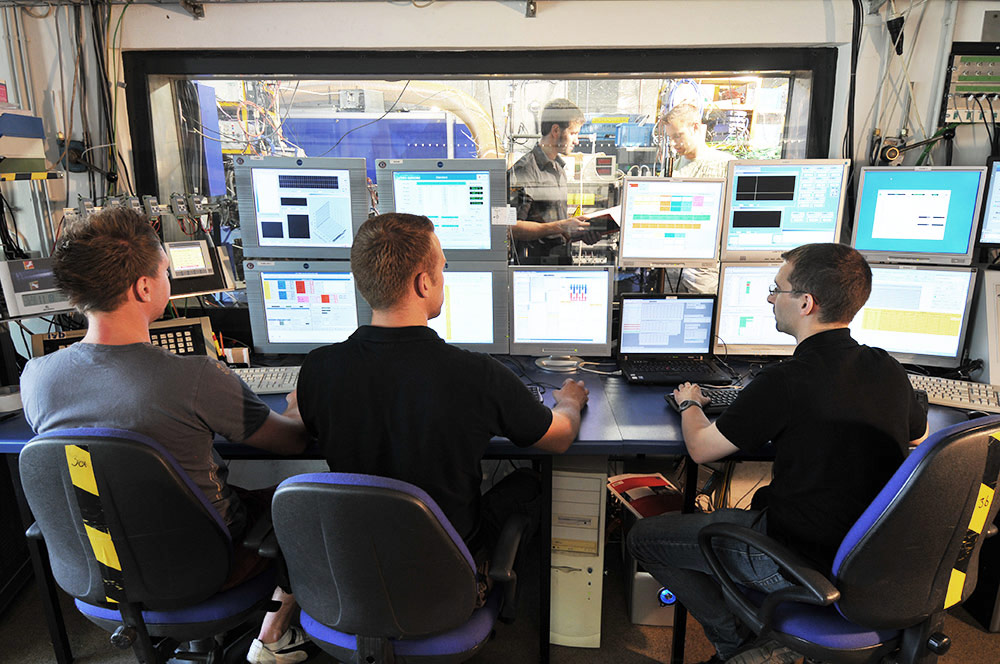
| Degree | Bachelor of Science |
|---|---|
| Standard duration of study | 6 semesters |
| Language of instruction | German |
| Start of programme | winter and summer semester |
| Admission | free admission |
Information technology systems surround us in our daily lives, they help us learn, they are indispensable in the world of work, and we spend much of our leisure time with them. Even when we sleep, digital systems are with us on our wrists or on our bedside tables. But IT systems do much more: they enable all energy-neutral technologies. They run our infrastructure networks. And finally, they connect people and democratise information and skills. The information technology engineers of the future will ensure that humanity achieves its sustainability goals. From 2030, the 6th generation of mobile communications will be in operation. Information and communication technologies will be energy neutral. From 2040, the quantum internet will be the secure, fast and resilient network of the future.
With a degree in engineering from TU Braunschweig, you are in high demand in both industry and academia. This applies in the research region of Wolfsburg, Hannover, Braunschweig as well as worldwide, because you have the know-how, the methods and the tools to research, develop and build technologies that enable the digital transformation and decisively determine our sustainable future. As early as the bachelor's programme, students work on current research and development projects, which are offered together with international academic and industrial partners in elective modules and for the bachelor's thesis. In the Master's programme, you will already be actively involved in research projects and participate in project meetings and conferences. The Departments of Computer Science are involved in major national 6G projects and international 6G research projects.
An important part of the specialisation "Information Technologies" are the modules in which a solid systematic methodical training takes place, which ensures that you will still be able to work successfully and enjoyably in the research and development of information technology systems in 20 years' time. In addition, these modules provide a link to current practical applications, which can be tried out in the laboratories of TU Braunschweig or at the project partners. During the annual student excursion, companies within a German or European region are visited and first contacts are established. It is not uncommon for industrial placements to be arranged and long-term partnerships to develop. Various cooperation partners, such as the German Aerospace Centre (DLR) or the Physikalisch-Technische Bundesanstalt (PTB), offer students additional insights into current scientific topics.
Digitalisation has now become an important part of every other scientific discipline and many synergies are possible. For this reason, the specialisation in "Information Technologies" offers many interdisciplinary modules, for example with life sciences, mechanical engineering or the natural and social sciences. Interdisciplinary projects are becoming more and more common, especially in the field of artificial intelligence, where experts in one field work together with computer scientists. Working in such diverse teams is fun. In addition, the many projects that deal with sustainability goals are very motivating and recognised by society. Even as an electrical engineering and information technology student, you quickly feel that you are making an important contribution to humanity and the planet.
You will need a formal university entrance qualification to apply for the programme. If you do not have the German Abitur, you can check our summary [in German only] to find out which degree programmes are available to you depending on your educational background.